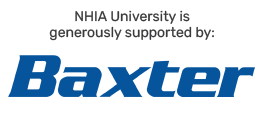
Parenteral Nutrition Management and Complications in the Post-Bariatric Surgery Patient
-
Register
- Prices available after logging in
The prevalence of obesity has been steadily rising, increasing worldwide by 28% in adults between 1980 and 2013 with estimates that over one-third of adults in the U.S. can be classified as obese and as much as 50% of the U.S. population will be obese by 2030. For patients who fail to achieve or maintain goal weight loss withother interventions, particularly those with a BMI of ≥40 kg/m2 or a BMI of 35-39.9 kg/m2 with 1 serious comorbidity, bariatric surgery (BS) is an option. But, these procedures can result in complications that require nutrition support until they are resolved. This article reviews the different surgical procedures and how they effect weight loss, as well as possible complications and how these might compromise nutritional status. Indications for nutrition support following BS are reviewed in additional to patient assessment and considerations for building a care plan.
Learning Objectives:
- Differentiate between the different bariatric surgical procedures and how each works to effect weight loss.
- Understand the possible complications associated with bariatric surgical procedures and how they may affect a patient's ability to take in and/or obsorb nutrients.
- List the conditions under which it is appropriate to consider parenteral nutrition (PN) in bariatric surgery patients.
- List 3 considerations for clinicians when creating a PN care plan for post-bariatric surgical patients.

Nicole Goben, MS, RD, CDN, CNSC
Clinical Dietitian
Yale New Haven Hospital
Nicole Goben, MS, RD, CDN, CNSC is an inpatient Clinical Dietitian at Yale New Haven Hospital. She has been a Registered Dietitian for 8 years and a certified nutrition support clinician for 2 years. She started her nutrition career in Buffalo, New York in the community sector but found her passion in clinical nutrition and nutrition support. She has vast experience working with post bariatric surgery patients who have required PN both inpatient and at home.
No Disclosures to Report

Katie Laskin, PharmD, BCSCP, CNSC
Clinical Pharmacist
Yale New Haven Home Infusion
Katie Laskin, PharmD, BCSCP, CNSC is a Clinical Pharmacist with Yale New Haven Health's Home Infusion program. She received her PharmD from the University of Connecticut in 2005 and has been working in home infusion in various roles since 2006. She is a Board Certified Sterile Compiunding Pharmacist and a Certified Nutrition Support Clinician.
No Disclosures to Report
